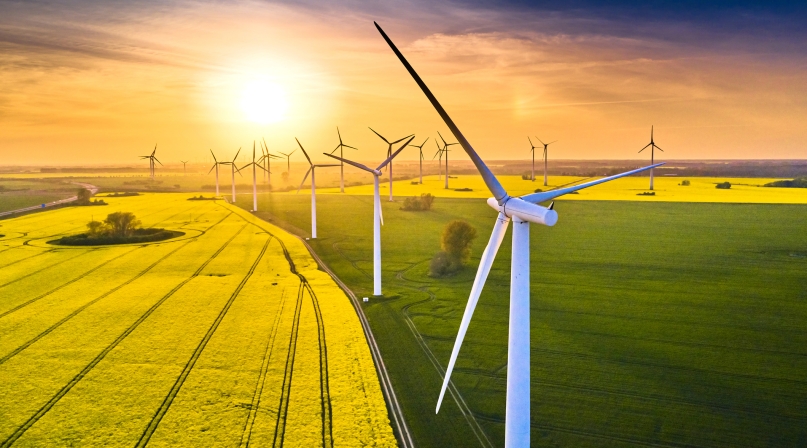Protecting farmland, rural communities are key topics for upcoming USDA and DOE listening sessions on clean energy siting
Author

Owen Hart

Joe Jackson

Charlotte Mitchell Duyshart
Upcoming Events
Related News

Key Takeaways
The U.S. Department of Agriculture (USDA) and the U.S. Department of Energy (DOE) will host a series of four listening sessions throughout January 2024. During these listening sessions, local stakeholders are invited to share perspectives on the benefits and challenges related to clean energy project siting and its impact on agricultural lands and rural communities.
Here's why it is crucial for county leaders to make their voice heard:
- Following historic federal investments through the Inflation Reduction Act and the Infrastructure Investment in Jobs Act, a record level of clean energy projects has been proposed and many are under construction in rural areas across the country, including on agricultural land.
- The deployment of clean energy is crucial for improving domestic energy security and rural economic development. However, if implemented without feedback from county leaders, concerns regarding diminished property values, loss of vital farmland and deterioration of the rural character could become a reality.
- There is no one-size-fits-all approach to clean energy siting, as each community has unique factors that must be considered during the implementation process.
- Preserving local decision-making is crucial to ensuring the clean energy deployment minimizes harm to the environment and working lands and maximizes benefits for communities.
Each listening session is geared toward a specific stakeholder group:
- Government permitting and policy representatives at the state, county and local level are invited to attend a session on January 12, from 12:30 p.m. – 2:00 p.m. EST. Register here.
- Agricultural producers are invited to attend on January 16, from 10:00 a.m. – 11:30 a.m. EST. Register here.
- All stakeholders and members of the public are invited to attend on January 16, from 2:30 p.m. – 4:00 p.m. EST. Register here.
- Rural stakeholders and clean energy developers on January 17, from 3:00 p.m. – 4:30 p.m. EST. Register here.
These sessions will provide a valuable opportunity for county leaders and other stakeholders to communicate their thoughts on clean energy siting challenges to our federal partners.
Counties applaud USDA and DOE efforts to engage local leadership because:
- Counties support the recognition and incorporation of the county perspective on clean energy siting.
- Counties support comprehensive efforts to encourage and enable American agriculture to provide energy to the United States while continuing to produce abundant, safe and affordable food and fiber.
- State and federal entities must continue to partner with counties to implement locally led strategies for the conservation and use of natural resources.
Related News
2025 Rural Innovation Summit Brings Together Rural Development Leaders at NACo Headquarters
On April 10, NACo hosted the 2025 Rural Innovation Summit at its Washington, D.C. headquarters, convening more than 60 rural development leaders, practitioners, policymakers and advocates for a day of in-depth policy dialogue, partnership building and federal advocacy.

House Natural Resources Committee Considers the Endangered Species Act Amendments Act of 2025
On March 6, House Natural Resources Committee Chairman Bruce Westerman (R-AR) introduced the Endangered Species Act Amendments Act of 2025 (H.R. 1897), which makes several important changes to the Endangered Species Act (ESA) and addresses key county concerns.

White House signs executive orders to boost coal industry
On April 8, President Trump signed four [RY1] [CM2] executive orders (EOs) focused on the U.S. coal industry, aligning with the Administration’s “Unleashing American Energy” EO signed in January 2025.
